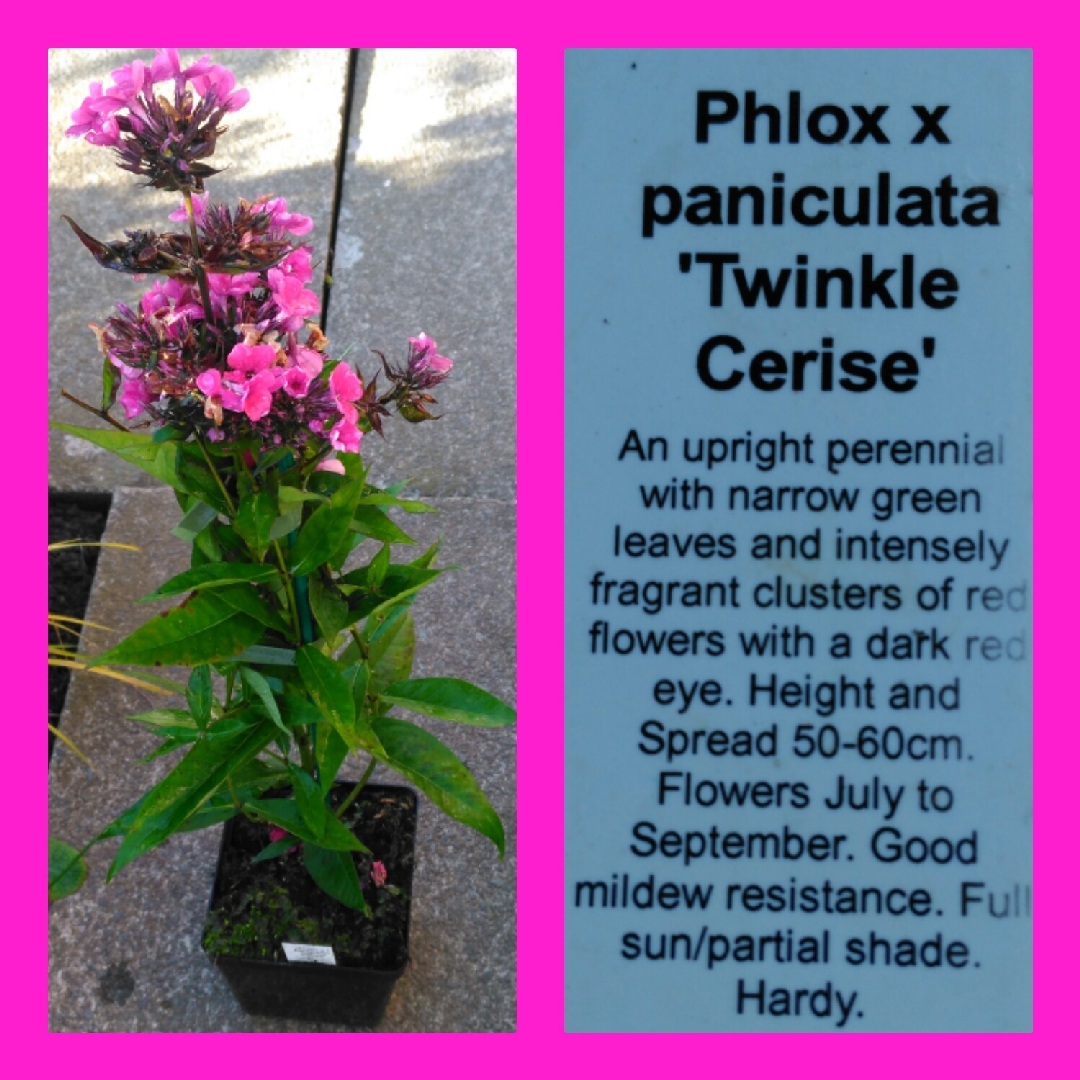
Phlox paniculata 'Twinkle Cerise'
Phlox 'Twinkle Cerise'
An upright perennial with narrow green leaves and intensely fragrant flowers with a dark red eye. Flowers from July to September. Good mildew resistance. Phlox paniculata have abundant, colourful flowers, each has a tube opening into five petals and often with a contrasting colour at the throat. Some border perennials are vulnerable to mildew
Contributed by @Keely
-
Full sun
-
Occasional watering
-
Full Frost Hardy: 5F (-15°C)
-
Moist and free draining
Common name
Phlox 'Twinkle Cerise'
Latin name
Phlox paniculata 'Twinkle Cerise'
type
Herbacious Annual or perennial
family
Polemoniaceae
ph
5.6 - 7.8 Acid - Neutral
Plant & bloom calendar
-
Best time to plant
-
When the plant will bloom
full grown dimensions
 0.40 M
0.60 M
0.40 M
0.60 M
Phlox paniculata 'Twinkle Cerise'
An upright perennial with narrow green leaves and intensely fragrant flowers with a dark red eye. Flowers from July to September. Good mildew resistance. Phlox paniculata have abundant, colourful flowers, each has a tube opening into five petals and often with a contrasting colour at the throat. Some border perennials are vulnerable to mildew
Plant container plants
From Early Spring TO Mid Spring
Plant container plants in a sunny position.
Propagation by Root cutting
From Early Spring TO Early Spring
Carefully lift the plant out of the ground, do not to damage its roots. Rinse the roots in water to remove all soil. With a sharp knife, take off 5cm lengths of pencil thin roots. Fill pots with compost to which grit has been added, lay the cuttings, spaced out, on top. Cover with a thin layer of compost. Water well, label pots and place in a in a cold frame or somewhere cool indoors. Replant the parent plant.
Propagation by Division
From Mid Autumn TO Mid Autumn
Using a fork dig up the plant, try to keep the root ball as complete as possible. Split the root ball at the centre with a sharp knife or a spade. Replant the plants to the same depth as the original and keep well watered until established.
Flowering
From Early Summer TO Late Summer
Phlox have a long flowering season through Summer. Depending on the variety, they flower from early Summer right through to late Summer









